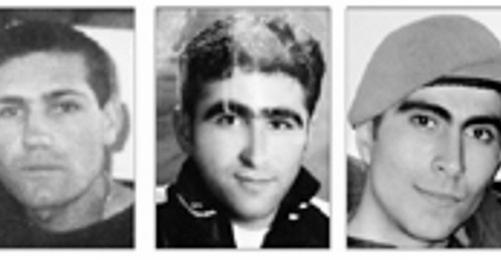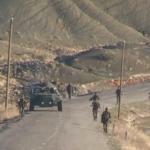RIGHT TO LIFE
Confirmed: Soldiers Killed by Mine from the Army

The Gendarmerie criminal laboratory confirmed now that the mine that killed seven soldiers in May 2009 belonged to the army and was produced by the Machinery and Chemical Industry Corporation (MKEK).
The case file of the trial launched by the family of the victims was sent from the Van prosecution to the Military Prosecution of the General Staff.
Seven soldiers, namely Ziya Bener, Deniz Demirci, Özkan Dumlu, Cafer Çelik, Kemal Özer, Adil Yılmaz and Oğuz Kır, were killed in the mine explosion in Çukurca at the south-eastern tip of the country on 27 May 2009. Another seven soldiers were wounded: Muhterem Akalın, Samet Koca, Ferhat Bilmez, Muhammet Akdeniz, Aytaç Güney, Fırat Güneş and Mehmet Solmaz.
In the report issued in July 2009 by the Gendarmerie Van Regional Criminal Laboratory, it had been stated that parts produced by MKEK were used for the preparation of the mine.
After the incident, the General Staff had announced that the mine had been planted by the militant Kurdistan Workers' Party (PKK). Nevertheless, in voice records attributed to Hakkari Division Commander Major General Gürbüz Kaya (G.K.) and Çukurca Brigade Commander Brigadier General Zeki Es (Z.E.), Es said "I buried them myself". The General Staff did not deny these allegations.
An investigation was initiated after the families of two victims, Ziya Bener and Deniz Demirci, had filed a criminal complaint.
What comes next?
Subsequent to the mine explosion, Prime Minister Recep Tayyip Erdoğan had refused to follow his original plan of inviting the pro-Kurdish Democratic Society Party (which has been closed in the meantime) for a meeting.
A meeting between Erdoğan and DTP Co-Chair Ahmet Türk at that time would have been a crucial step related to the solution of the Kurdish question since the government had initiated the process of the so-called "democratic initiative". And Chief of General Staff had said that Turkey "unfortunately, had to live with terror", saying about PKK militants, "they will be searched and found and I will eliminate them". The meeting between Erdoğan and the DTP was then held on 5 August.
Almost a year has passed since the incident and the DTP was closed by the Constitutional Court in the meantime, which also brought a political ban for Ahmet Türk. The voice records claimed to be conversations of the people responsible for placing the mine were published in the internet.
So what is Erdoğan going to do now? Will he prefer to talk to İlker Başbuğ?
Erdoğan had not commented the voice records. Neither had the General Staff made any announcement.
Even if Erdoğan will not do anything, he still owes an apology to the DTP, to Kurdish politicians and to Ahmet Türk. Let us remember the Prime Minister's speech after he had recently threatened illegal Armenian immigrants to send them back to their country. Did he not say that he knew whom he was supposed to apologize to? (TK/VK)
KURDISH QUESTION
PKK Ceasefire to be Terminated on 31 October?

KCK CASE
Court Dismissed Request for Defence in Kurdish

7th Istanbul Gathering for Freedom of Thought

CONSTITUTIONAL AMENDMENTS
58 Percent Said "Yes" to Constitutional Reform Package

Rights Organizations 3 Years ahead of Foreign Minister






